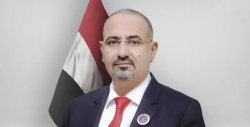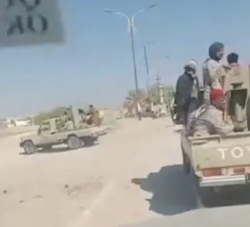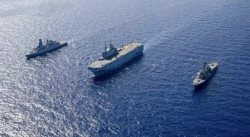Ukraine tensions: Can diplomacy prevent war?
- 2022-02-11 05:03:27


 Pierre Rayer: Art, Science, and Happiness: The Universal Mission of Transmission to Future Generations through Patronage at the Louvre Abu Dhabi
Pierre Rayer: Art, Science, and Happiness: The Universal Mission of Transmission to Future Generations through Patronage at the Louvre Abu Dhabi Ahly crowned Super champions after dramatic extra-time win over Modern Future FC
Ahly crowned Super champions after dramatic extra-time win over Modern Future FC Yemeni Honey..A Development Wealth Threatened By Conflict And Climate Change
Yemeni Honey..A Development Wealth Threatened By Conflict And Climate Change California wildfires: Millions warned of possible power cut
California wildfires: Millions warned of possible power cut Central African rebels launch attacks near capital
Central African rebels launch attacks near capital UAE announces full withdrawal of its forces from Yemen
UAE announces full withdrawal of its forces from Yemen UAE reaffirms commitment to de-escalation in Yemen
UAE reaffirms commitment to de-escalation in Yemen Yemen’s STC announces two-year transitional phase
Yemen’s STC announces two-year transitional phase Yemen: Seven Saudi Airstrikes Hit STC in Camp in Hadramout, Casualties Reported
Yemen: Seven Saudi Airstrikes Hit STC in Camp in Hadramout, Casualties Reported Yemen: Faces Critical Phase Amid Rising Security Concerns in Red Sea
Yemen: Faces Critical Phase Amid Rising Security Concerns in Red Sea
